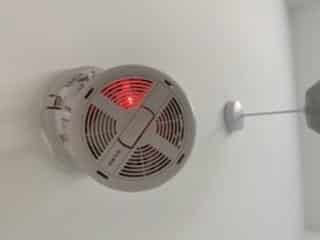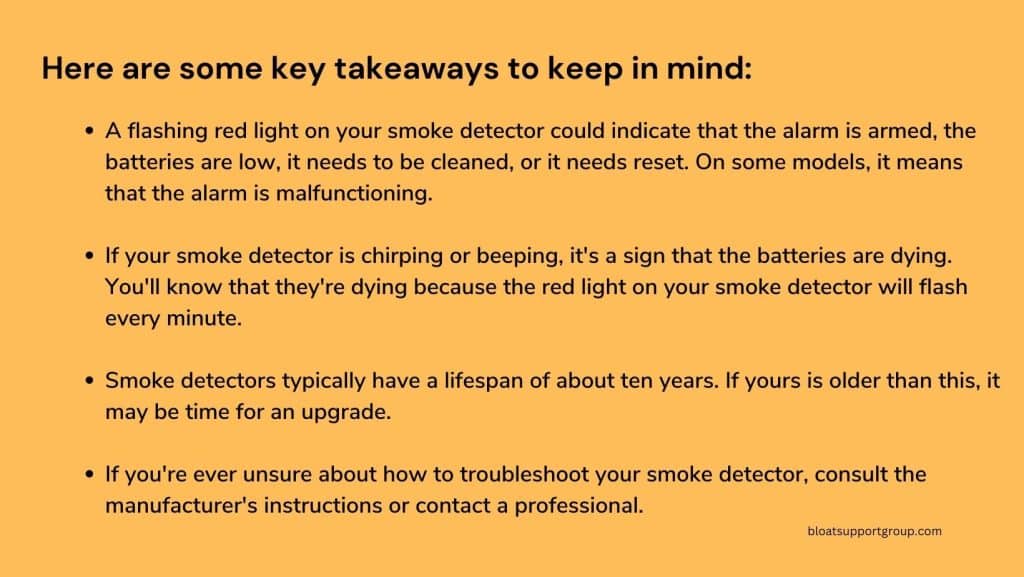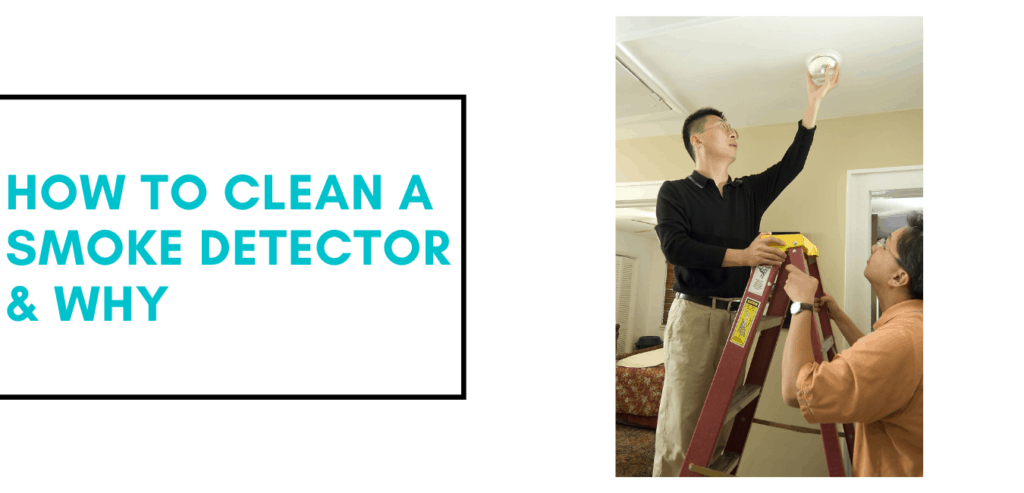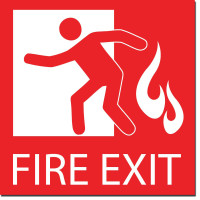Why would your smoke alarm go off without smoke? This puzzling question often leads to a scramble, checking every corner of your home for signs of fire.
Yet, the reason might lie not in a real threat but in common household triggers. Let’s dive into what could be causing your smoke alarm’s false alarms and how to fix them.

Smoke alarms are essential for home safety, tirelessly standing guard to alert you at the first hint of a fire. But how do they do it? Most smoke alarms use ionization chambers or photoelectric sensors to detect smoke.
Ionization smoke detectors are quick to respond to flaming fires, whereas photoelectric detectors are better at sensing smoldering fires. Knowing which type you have can help you understand their behavior and maintenance needs better.
Common Causes of False Alarms
Battery Issues
The most common culprit behind a beeping smoke alarm is often a simple one: the battery. Whether your alarm is chirping intermittently or screaming incessantly, the first step is always to check the battery.
Replace it regularly—even if it hasn’t died yet—to keep your alarm functioning properly.
| Battery Maintenance Tips |
|---|
| Check batteries every 6 months |
| Replace batteries annually |
| Use quality batteries for better performance |
Dust and Debris
Just like any household appliance, smoke alarms can accumulate dust and debris. This buildup can interfere with the sensors, mimicking the presence of smoke and causing false alarms.
Cleaning your smoke alarm regularly is crucial:
- Open the cover.
- Gently use a vacuum hose to suck out dust.
- Wipe the inside with a clean cloth.
Environmental Factors
Various environmental factors can also trigger your smoke alarm:
- Humidity: High humidity or steam from a hot shower can lead to false alarms.
- Temperature fluctuations: Sudden changes in temperature can affect the alarm’s sensitivity.
Positioning your smoke alarm in a spot away from bathrooms and kitchen areas can help minimize these false triggers.
Chemicals and Sprays
Using strong chemicals and aerosols near your smoke alarm can be another unexpected cause of false alarms.
Products like aerosol sprays, heavy perfumes, or even strong cleaning agents can trigger your smoke alarm if used in close proximity. Always ventilate the area well when using these products.
End of Life Cycle
Smoke alarms don’t last forever. They are generally reliable for about 8-10 years.
If your smoke alarm frequently goes off without an apparent reason, it might be time to replace it. Check the manufacture date on your alarm and upgrade if necessary.
How to Prevent False Alarms
The best approach to preventing false alarms is regular maintenance and strategic placement of your smoke alarms.
Here’s how you can ensure your smoke detectors are less likely to go off unnecessarily:
- Regular Cleaning: Keep your smoke alarms clean. Dust and other particles can easily trigger a false alarm, so a gentle cleaning with a vacuum attachment every few months is essential.
- Proper Placement: Avoid installing smoke alarms near the kitchen or bathrooms where cooking smoke or steam is prevalent. Instead, place them in hallways outside bedrooms or on living room ceilings.
- Check Humidity Levels: High humidity can also lead to false alarms. Using dehumidifiers in areas like basements and kitchens can help reduce these instances.
- Avoid Chemicals: Be mindful of using heavy perfumes, aerosols, or strong cleaning agents near your alarms.
| Preventative Tips | Why It Helps |
|---|---|
| Clean every 6 months | Reduces dust and insect build-up |
| Strategic placement | Avoids steam and smoke triggers |
| Control humidity | Prevents steam-based triggers |
| Use fewer chemicals | Reduces sensitivity to non-smoke particles |
For a deeper dive into modern smoke alarm technology and maintenance tips, check out this resource from ADT.
Troubleshooting Steps
When your smoke alarm does go off, it’s important to know what steps to take to identify and resolve the issue:
- Check the Battery: First, ensure that the battery is not the cause. Replace it if it hasn’t been changed recently.
- Inspect for Insects: Open the alarm and look for bugs that might have gotten inside and are affecting the sensors.
- Clean the Detector: Use a soft brush attachment on your vacuum to clean inside the detector thoroughly.
- Reset the Alarm: After cleaning and checking, reset your smoke alarm to see if it clears the false alarm.
If these steps don’t resolve the issue, you might consider contacting a professional or replacing the unit, especially if it is nearing the end of its lifespan.
For the best options in new smoke alarms, consider upgrading to a smart smoke detector, which can provide more reliable monitoring and fewer false alarms.
Upgrading Your Smoke Alarm System
Technology in smoke detection has advanced significantly. Modern smoke alarms integrate with home automation systems and offer features like remote monitoring and notifications on your smartphone:
- Smart Smoke Detectors: These devices can differentiate more accurately between steam and smoke, reducing false alarms significantly.
- Integration with Home Systems: Connect your smoke alarms to your home security system for integrated safety alerts.
Remember, upgrading your smoke detection system is not just about convenience; it’s about enhancing the safety and security of your home.
Frequently Asked Questions
How often should I replace my smoke alarm?
- Replace smoke alarms every 10 years.
What causes a smoke alarm to beep without smoke?
- Common causes include low battery, dust, humidity, and environmental irritants.
Can steam make a smoke alarm go off?
- Yes, high humidity and steam from showers or cooking can trigger alarms.
How do I stop my smoke alarm from going off randomly?
- Regular maintenance and correct placement are key to preventing false alarms.
Are smart smoke detectors worth the investment?
- Yes, for their accuracy and features like remote notifications, they are highly recommended.
Conclusion
By understanding the mechanics behind smoke alarms and recognizing common triggers of false alarms, you can effectively maintain and manage your smoke detection system.
Implementing regular maintenance routines and considering upgrades to smarter, more efficient technologies will enhance your home’s safety and give you peace of mind.








